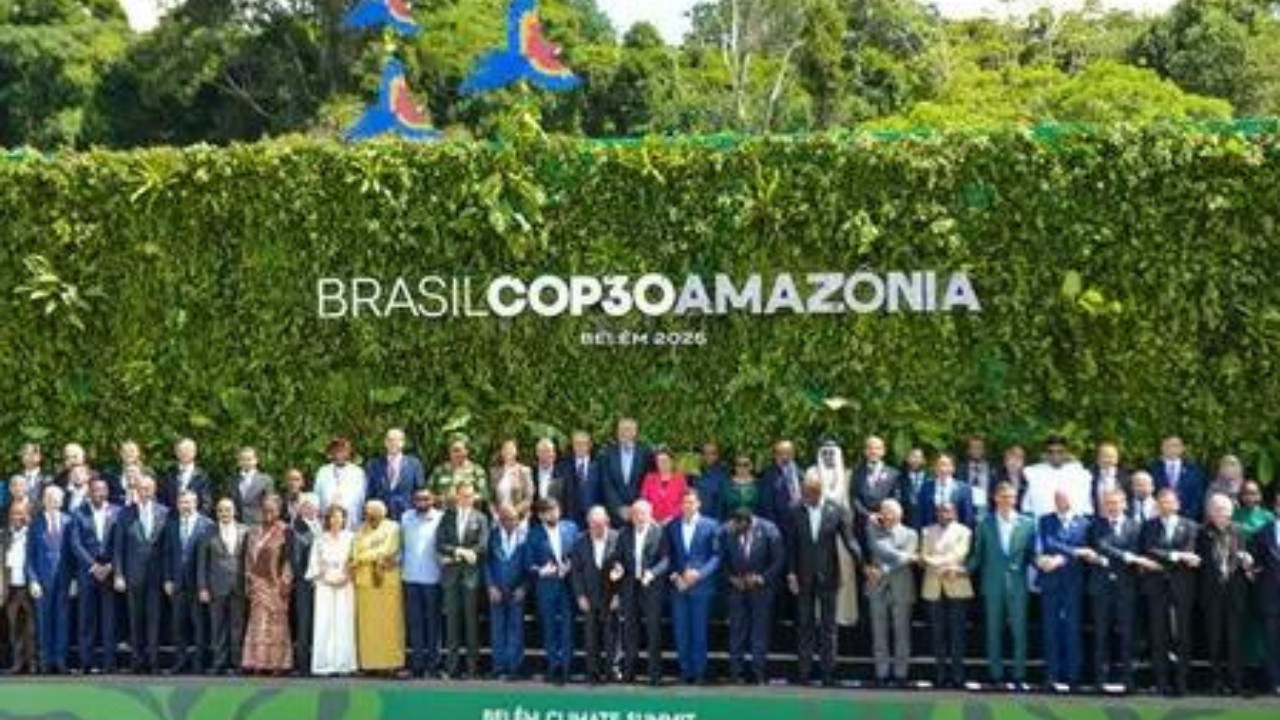India champions fair climate finance at COP30. The nation highlights its significant progress in reducing emissions and boosting renewable energy. India calls on developed countries to fulfill their climate pledges. The focus is on implementation, resilience, and shared responsibility for a sustainable future. India is ready to collaborate on ambitious, equitable solutions.
COP30: India Pushes for Fairness in Climate Finance
The world is warming, that’s no secret. And as the clock ticks louder, the urgency to address climate change grows deafening. At the recent COP30 preparatory meeting in Brazil, India didn’t mince words: developed nations need to pony up and deliver on their long-overdue climate finance commitments. It’s not just about charity; it’s about fairness and enabling developing nations to effectively tackle the climate crisis.
For years, developed countries have pledged to provide substantial financial assistance to developing nations, helping them transition to cleaner energy sources, adapt to the impacts of climate change, and build resilient infrastructure. These promises haven’t exactly materialized at the scale needed. India is now leading the charge, emphasizing that equitable concessional finance is the very foundation upon which a sustainable future can be built.
The Cornerstone of Climate Action: Equitable Finance
India’s stance is simple: Climate action isn’t a one-size-fits-all affair. Developing nations often face unique challenges – limited resources, existing developmental priorities, and vulnerabilities to climate impacts that are disproportionately higher. Access to affordable and readily available finance is crucial for these nations to implement ambitious climate targets without sacrificing economic progress.
Imagine trying to build a state-of-the-art, energy-efficient public transportation system when your national budget is already stretched thin addressing basic needs like healthcare and education. That’s the reality many developing nations face. Concessional finance – loans with below-market interest rates and grants – becomes a lifeline, allowing them to invest in sustainable development without crippling their economies.

The call for equitable climate finance also goes beyond just the amount of money. It’s about the terms and conditions attached. Developing nations need access to funds that are easily accessible, flexible, and aligned with their specific needs and priorities. Complex bureaucratic procedures and stringent requirements can often hinder access and delay crucial projects.
Developed Nations: Time to Walk the Talk
India’s strong statements at COP30 aren’t just for show. They reflect a growing frustration among developing nations with the slow pace of climate finance mobilization. While some progress has been made, the gap between promised commitments and actual disbursements remains significant.
Developed nations have a historical responsibility. They are, after all, the largest contributors to greenhouse gas emissions. Fulfilling their climate finance pledges isn’t just about being generous; it’s about acknowledging and addressing the disproportionate impact of climate change on developing nations.
The upcoming COP meetings present a critical opportunity for developed nations to demonstrate their commitment to climate action by delivering on their financial promises. This includes not only meeting existing pledges but also scaling up ambition and ensuring that finance flows are predictable, transparent, and aligned with the needs of developing nations. Explore more on [India’s commitment to renewable energy adoption](/renewable-energy-india).
Beyond Finance: A Holistic Approach
While finance is undoubtedly crucial, it’s important to remember that it’s just one piece of the puzzle. India has consistently emphasized the need for a holistic approach to climate action, one that encompasses technology transfer, capacity building, and international cooperation.
Developing nations need access to the latest climate technologies to accelerate their transition to cleaner energy systems and build climate-resilient infrastructure. This requires developed nations to facilitate the transfer of these technologies on favorable terms, enabling developing nations to adapt them to their specific contexts.
Capacity building is also essential, empowering developing nations to develop their own climate strategies, implement projects effectively, and monitor progress. This requires investing in education, training, and research in developing nations.
Looking Ahead: A Call for Collective Action
The road to a sustainable future is paved with challenges, but it’s not an impossible journey. By prioritizing equitable concessional finance, fostering technology transfer, and building capacity in developing nations, we can create a more just and sustainable world for all. India’s strong voice at COP30 serves as a powerful reminder that climate action is a collective responsibility, requiring developed and developing nations to work together in a spirit of solidarity and mutual respect. The success of global climate efforts hinges on the fulfillment of climate finance commitments, ensuring a future where all nations can thrive in a climate-resilient world. The time for action is now.
Final URL Slug: india-cop30-climate-finance







